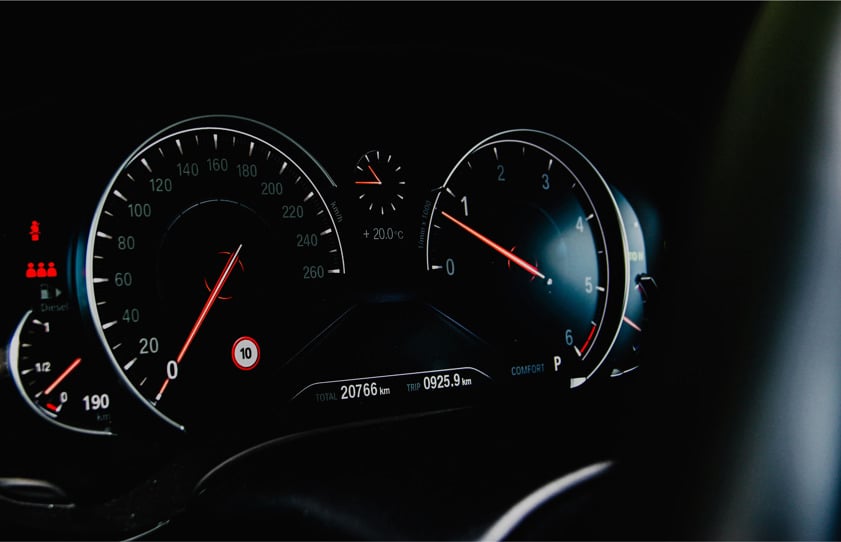
Starting from July 2024, all new vehicles sold in the European Union, including Northern Ireland but excluding Great Britain, will come equipped with mandatory speed limiters. This significant change aims to enhance road safety and ensure drivers adhere to speed limits. Let’s delve into what this means for drivers, the technology behind speed limiters, and the expected impact on road safety.
From 7 July 2024, the EU mandates that all new cars be fitted with an Intelligent Speed Assist (ISA) system. This requirement stems from the 2019/2044 regulation by the European Commission, reinforcing a prior mandate from July 2022 that required speed limiters on new vehicle models. Interestingly, while Northern Ireland will adopt these rules, Great Britain has opted out. However, the Department for Transport (DfT) continues to explore technological advancements to improve safety and reduce emissions.
A speed limiter is a device that prevents a car from exceeding a preset speed limit. Unlike cruise control, which maintains a constant speed, a speed limiter allows normal acceleration and deceleration but restricts the top speed. The purpose is to act as a speed warning system rather than a tool to ease long-distance driving.
The ISA technology utilises GPS data and traffic sign recognition cameras to determine the speed limit in a given area. If a driver exceeds this limit, the system reduces the engine’s power, slowing the vehicle. Drivers receive haptic, audio, and visual warnings if they continue to speed. Although you can temporarily override the limiter by pressing hard on the accelerator, the system reactivates every time you start the car.
Many manufacturers, including Citroen, Ford, Honda, Jaguar, Peugeot, Renault, and Volvo, already include factory-fitted ISAs. Renault, for instance, has gone further by limiting all new models to a top speed of 112 mph.
Despite the promising safety benefits, there are concerns regarding the implementation and effectiveness of speed limiters:
- Driver Annoyance: The various warning signals (audio, visual, haptic) could be distracting or irritating.
- Technology Limitations: Forward-facing cameras and traffic-sign recognition systems might not always accurately detect speed limits due to obstructed signs or changing speed zones.
- Reliability Issues: Instances of sat-nav errors causing incorrect speed limits to be applied have raised questions about the system’s accuracy.
To address these concerns, the European Commission will assess the system’s effectiveness in December 2025, using anonymous data to refine the approach.
While the regulation allows drivers to switch off the ISA, it automatically reactivates when the car is restarted. Removing the limiter to achieve higher speeds or better fuel efficiency is discouraged, as exceeding legal speed limits remains dangerous and illegal.
The primary goal of mandatory speed limiters is to reduce road accidents. The European Transport Safety Council (ETSC) estimates a 30% reduction in collisions due to these devices. Moreover, the European Commission believes the technology could prevent 140,000 serious injuries by 2038 and aims to achieve zero road deaths by 2050.
The new EU regulations also introduce other safety features, including:
- Autonomous emergency braking
- Data loggers (black box technology)
- Emergency stop signals
- Driver fatigue detection systems
- Lane-keeping assistance
- Built-in breathalysers
- Reversing sensors or cameras
These systems are already standard in many new cars, contributing to higher safety ratings and overall road safety.
As we approach the implementation date, it’s clear that mandatory speed limiters represent a significant shift towards safer roads in the EU. While Great Britain isn’t adopting these rules, Northern Ireland’s compliance underscores the varying approaches within the UK. Drivers should stay informed about these changes and understand the technology to ensure a smoother transition. Stay safe on the roads and remember, adherence to speed limits not only protects you but also ensures the safety of others.
For more information, why not check out our Four driving laws you need to know during EURO 2024 blog? We also produce a range of weekly blogs on various topics, which can be found in the blog section of our website.
Nationwide Vehicle Contracts are one of the UK's leading car leasing brokers and offers a range of leasing deals to suit every need. To find out more, check out our comprehensive car leasing guides or call one of our experts on 0345 811 9595.

